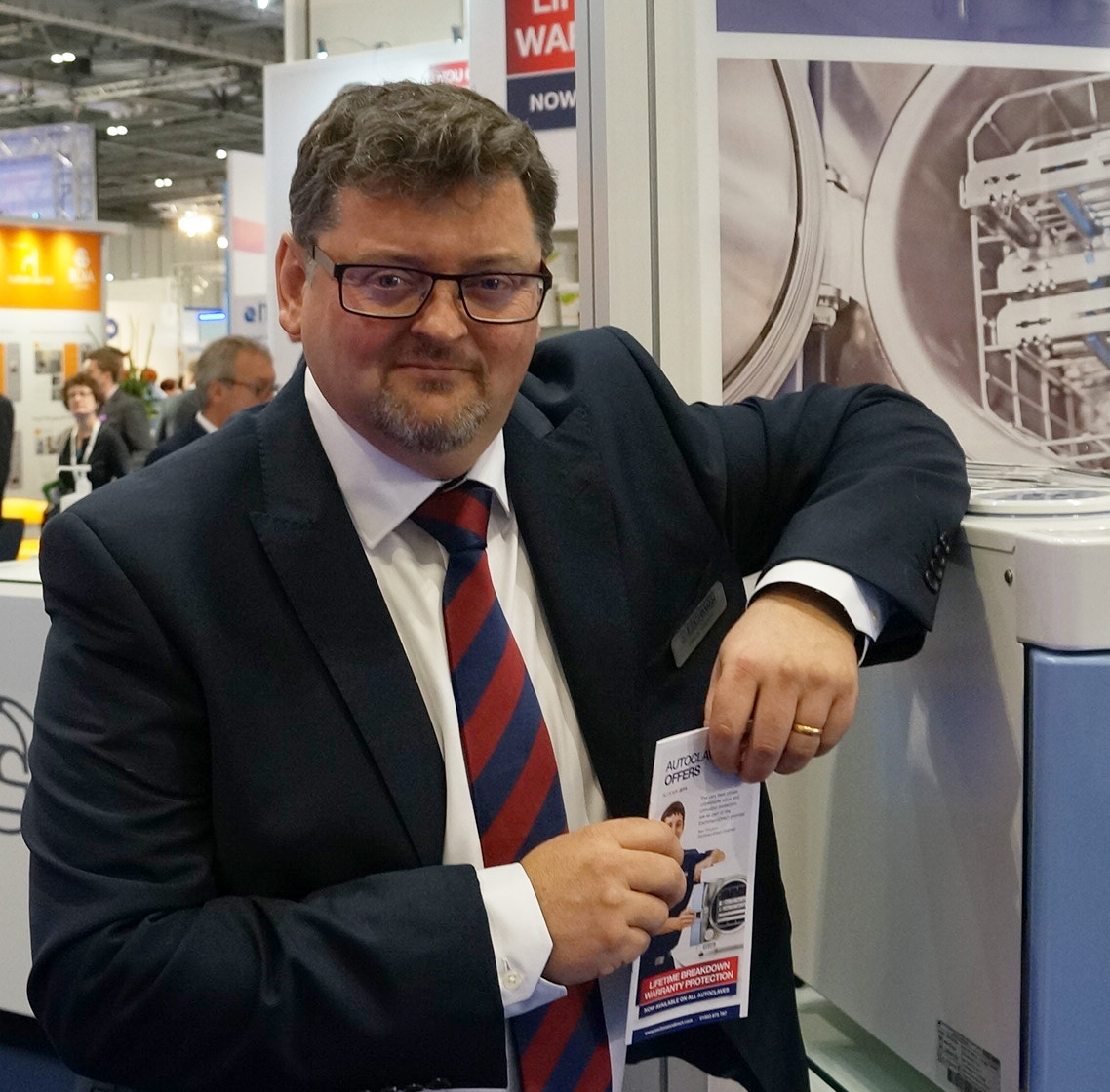Are you protecting against bloodborne diseases properly? – David Gibson Eschmann
Featured Products Promotional FeaturesPosted by: Dental Design 17th July 2019


Recent news reports revealed that a dental practice in Hertfordshire has potentially put hundreds of patients at risk of contracting bloodborne illnesses such as HIV and Hepatitis C. The use of non-sterilised equipment has been blamed, namely a scaler that was not decontaminated between patient appointments.[i]
Though the fault seems to have been traced to one individual who no longer works at the practice, this is a worrying example of why dental professionals need always be vigilant with their infection control, otherwise patients and staff alike could face life changing consequences.
Why are bloodborne diseases such a threat?
In many ways, bloodborne illnesses are more dangerous than bacterial infections and other viruses as many of them don’t have a cure. The human immunodeficiency virus (HIV) is a particular threat, as despite massive leaps forward in treating the virus and suppressing people’s ability to spread it, there is still currently no cure.
Those affected by HIV face a number of health complications, including a decreased immune response which leaves them susceptible to other diseases. Recent progressions in treatment of the disease mean that those affected can lead relatively normal lives, but these individuals are still at risk of more complications than those without the disease.
According to Avert, an estimated 102,000 people are living with HIV in the UK.[ii]While this means that transmission of the disease due to poor sterilisation is unlikely as so few individuals are affected, the threat is still there, especially if your practice is in an area of the UK that has a much higher prevalence of affected individuals such as London.
HIV is not the only worry, and other bloodborne diseases such as the various strains of Hepatitis are also a prominent concern. Though treatable, Hepatitis C is still responsible for hundreds of thousands of deaths around the world each year, and can easily be spread through blood contact.[iii]
Hepatitis B is also a problem, especially as many people who become infected do not exhibit any symptoms until they start suffering from the consequences. Cirrhosis, liver cancer and other liver-related maladies are the most likely outcome of Hepatitis B infections, and these can have life threatening consequences.[iv]
Protecting your practice
One of the most significant defences against the spread of bloodborne diseases is knowledge. In the previously mentioned case, it was revealed that the hygienist who was using the contaminated scaler did not realise that this item had to be sterilised all the time, and this led to multiple occasions where the instrument was not decontaminated between patient appointments.
As such, is there a way you can ensure that everyone in your practice is aware of the importance of decontamination? Strict guidelines need to be enforced, and by assessing the level of staff knowledge, you can hold refresher sessions on decontamination and sterilisation protocols as and when necessary.
The next step is to ensure that your practice has the products and technology necessary to ensure that you can comply with decontamination standards. Is there an effective cleaning regime in place already? Do you treat all surfaces in areas such as waiting rooms with effective cleaning products? This is a good first barrier of defence.
Instrument sterilisation is absolutely vital, especially when it comes to bloodborne diseases as this is the main pathway through which these viruses can spread. By using an effective autoclave that has been built to the latest EN13060 standards, you can ensure that all instruments are safe to use. The Little Sister SES 2020N autoclave from Eschmann is a particularly good choice, as not only does it feature a large, 17-litre capacity that can hold five full sized instrument trays and rapid cycles, but it also has the built-in level of protection and verification necessary to ensure it is completely compliant.
It has been built to the latest EN13060 standards and you can even use the optional wireless Autolog to automate your daily and weekly validation tests and ensure that your protection never falters.
Working towards a risk-free future
In the end, it’s inexcusable for mistakes such as the example we opened with to occur in the modern day. Although errors happen, it’s your duty as a professional to ensure that your practice is not responsible for widespread health concerns. By purchasing an effective autoclave and by sticking to guidelines to the letter, you can safeguard yourself from these occurrences, protecting your patients and your practice.
For more information on the highly effective and affordable range of decontamination equipment and products from Eschmann, please visit www.eschmann.co.uk or call 01903 753322
[i]The Daily Mail. Dental Clinic Tells More than 560 of its Patients to get HIV and Hepatitis Tests after Admitting Hygienist Repeatedly Used Unclean Scaler. Link: https://www.dailymail.co.uk/news/article-7048389/Dental-clinic-tells-560-patients-HIV-tests.html[Last accessed May 19].
[ii]Avert. HIV and Aids in the United Kingdom. Link: https://www.avert.org/professionals/hiv-around-world/western-central-europe-north-america/uk[Last accessed May 19].
[iii]Scientific American. e Now Have the Cure for Hepatitis C, but Can We Afford It? Link: https://www.scientificamerican.com/article/we-now-have-the-cure-for-hepatitis-c-but-can-we-afford-it/?redirect=1[Last accessed May 19].
[iv]NHS. Hepatitis B. Link: https://www.nhs.uk/conditions/hepatitis-b/complications/[Last accessed May 19].









